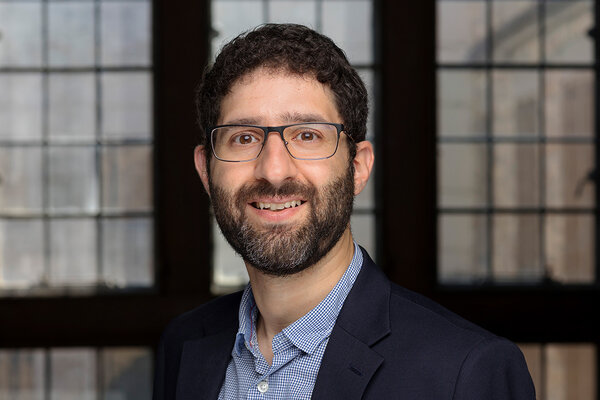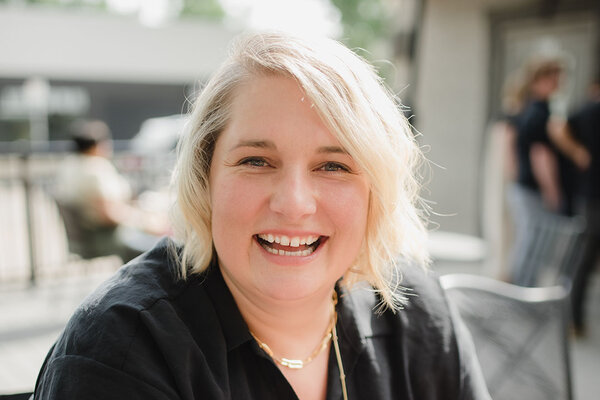
Think Big – Be Bold: College of Arts and Science launches plan to 2025
"Our plan embraces what we value as a college and as a university, and that is Indigenization, internationalization, interdisciplinarity and collaboration," says Dean Peta Bonham-Smith
By Shannon Boklaschuk
The College of Arts and Science is launching an innovative new plan that will guide the activities and priorities of the University of Saskatchewan’s largest college for the next seven years.
Titled Think Big – Be Bold: Arts and Science 2025, the college plan is intended to be forward-looking and ambitious. Dean Peta Bonham-Smith noted those characteristics are reflected in the document’s title, which also serves as a call to action. Students, faculty and staff are encouraged to think big about big ideas and to be bold in bringing those ideas to fruition.
“We are a college that is well positioned to be innovative and to help address the needs of today’s learners as well as the learners of the future,” said Bonham-Smith. “One of the strengths of our college is that we are accustomed to working together across disciplinary lines to develop new ideas and to find solutions to pressing issues.”
Bonham-Smith said the college plan is “very student-focused,” noting that putting students first is one of the plan’s four major college-specific commitments, together with diversity and equity in faculty and staff, excellence in research, scholarly and artistic work and new curricula.
“Our plan embraces what we value as a college and as a university, and that is Indigenization, internationalization, interdisciplinarity and collaboration,” said Bonham-Smith.
Some of the goals within the commitment to put students first include building an Arts and Science ‘Student First’ space; increasing first-to-second-year retention of students, with particular attention to Indigenous student populations; and promoting internationalization through study abroad, student exchange and international student recruitment initiatives.
“We want to improve the student experience. In the programming arena, we’re trying to think both about what students want and about what students need,” said Bonham-Smith. “We want to boost student enrolment through recruitment and retention initiatives and enhance the student experience through flexible and accessible student advising and mentoring.”
The second commitment in the plan is focused on inspiring excellence and increasing diversity and equity in faculty and staff. Bonham-Smith said the college needs to increase the college’s percentage of Indigenous faculty members and female faculty members, as well as the number of women in college leadership positions and in science, technology, engineering and mathematics (STEM) fields.
“We are seeking to improve diversity, equity and inclusion and to improve faculty mentorship,” she said. “Our college also believes it is important to celebrate and recognize faculty achievement, and we will be looking at ways to do this as we move forward with the plan.”
The third commitment in the plan is to inspire and foster excellence in research, scholarly and artistic work (RSAW). This includes partnering with community and institutional initiatives to support all aspects of Indigenizing RSAW, advancing community-engaged RSAW across the college and celebrating and championing the impact and achievement of the college’s artists, scholars and researchers.
“We want to improve our tri-agency outcomes by increasing the intensity of RSAW in the College of Arts and Science,” said Bonham-Smith. “One of the ways we will do this is to build on our college’s distinctive strengths and to foster connections and collaborations, both on and off campus.”
The fourth commitment in the plan it to implement new curricula. This includes equipping students with the skills, knowledge and cultural competencies they will need to face the challenges and opportunities of the 21st century.
“Our college is launching several new academic certificate programs over the next two to three years, but more imminent is the college curricular renewal project that will see new English language, Indigenous learning and quantitative reasoning requirements come into effect in 2020,” said Bonham-Smith.
“An integral component of our plan is to Indigenize and decolonize the College of Arts and Science by addressing racism and promoting understanding. To help achieve this we will be establishing a Centre for Indigenous Scholarship.”
Immense consultation, input and collaboration went into the development and approval of the college plan. Bonham-Smith is grateful to everyone who worked on the process that was led by Director of Planning and Communications Andrea Wasylow.
“This plan belongs to all of us, and now is the time for all of us—students, faculty and staff—to think big and be bold,” she said.
For more information about the College of Arts and Science’s plan, visit the college plan website.


